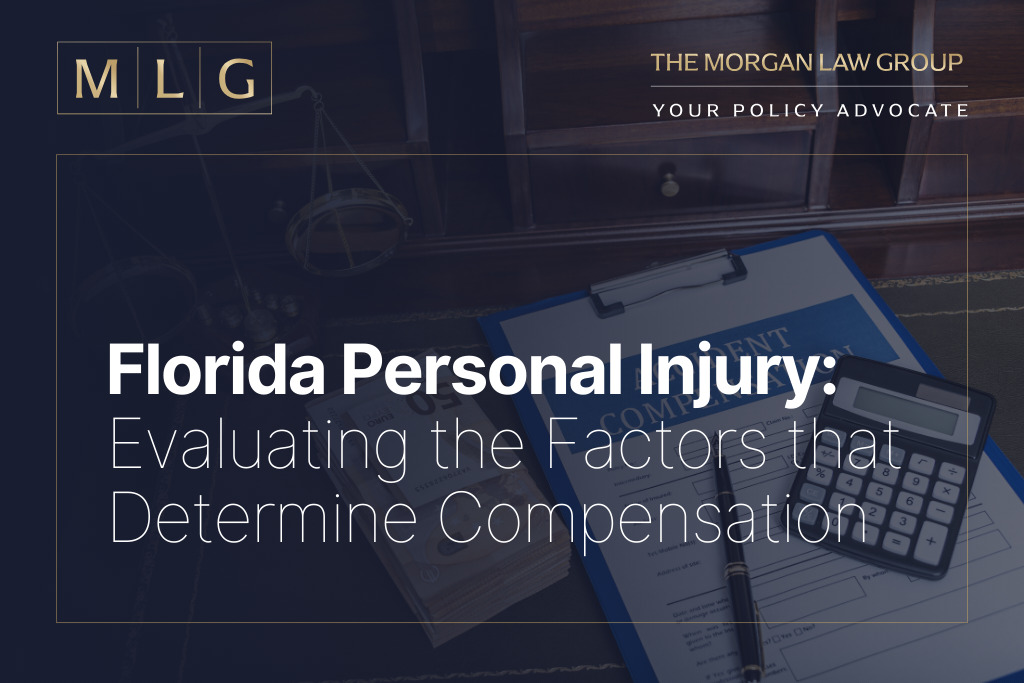Each year in Florida, countless residents and visitors face unexpected accidents that alter their lives in a blink. From car collisions to motorcycle mishaps, these Floird personal injury incidents often lead to both physical and emotional trauma.
For the affected, understanding the financial landscape that follows such life-altering incidents becomes imperative. In this blog, we’ll shed light on the factors determining compensation in Florida personal injury cases.
Factors Influencing Compensation
The following are some of the factors that may influence the amount of compensation you receive in a Florida personal injury case:
Nature and Severity of the Injury
The degree of harm suffered is the primary factor in any personal injury claim. It’s crucial to consult medical professionals immediately after an accident. Documentation like X-rays, MRI scans, and medical reports serve as evidence. Different types of injuries have varying levels of impact on compensation. For instance:
- Soft Tissue Injuries: Minor issues like sprains or bruises usually result in lower compensation.
- Broken Bones: Fractures can significantly increase the compensation due to the painful recovery and possible long-term impact.
- Traumatic Brain Injuries: These often result in high compensation due to the severe, long-lasting effects on cognitive functions.
Medical Expenses
Compensation is directly influenced by the medical costs incurred. Keep every bill, prescription, and any other document related to your medical care. The more extensive the medical care, the higher the compensation. Medical expenses might include:
- Immediate Care: Emergency room visits, surgical interventions.
- Ongoing Care: Physical therapy, medications, rehabilitation services.
- Future Needs: For chronic conditions or permanent disabilities, future medical expenses are estimated and included.
Loss of Earnings
If the injury has forced you to take time off work, you may be entitled to compensation for lost wages. Moreover, if it impacts your ability to earn in the future, that potential loss is also taken into account. Tax records, pay stubs, and employment contracts can help substantiate these claims. Compensation for loss of earnings could be categorized as:
- Short-Term: Wages lost due to immediate absence from work.
- Long-Term: When your ability to earn is affected for an extended period.
- Loss of Earning Capacity: If your earning potential is permanently affected.
Pain and Suffering
It’s not just about the tangible. Emotional distress, psychological trauma, and a decreased quality of life post-accident are considered in compensation. These are often harder to quantify but are significant nonetheless. A journal detailing your daily pain levels and emotional state can serve as evidence. There’s a wide spectrum of non-economic damages under this category:
- Physical Pain: Long-term discomfort or recurrent pain.
- Emotional and Psychological Trauma: PTSD, anxiety, depression.
- Loss of Enjoyment: Inability to enjoy hobbies or other activities.
Property Damage
If your personal property, such as a car, is damaged in the incident, the repair or replacement costs are included in the compensation calculation. Photographs of the damaged property and repair or replacement estimates can be essential pieces of evidence. This encompasses various types of property:
- Vehicles: Cars, motorcycles, or bicycles.
- Personal Items: Clothing, electronic devices.
Modified Comparative Negligence
Florida follows the rule of modified comparative negligence. If you are found to be more than 50% at fault for the accident, you may not be able to recover compensation. Gathering witness statements and surveillance footage can help reduce your percentage of fault.
Capacity of the Defendant to Pay
In cases where the defendant is an individual, their ability to pay the settlement might influence the compensation. Insurance policies usually have limits, and individual assets can be limited. It’s important to consider who you are claiming against:
- Individuals: May have limited resources; hence settlements might be constrained.
- Businesses or Government Bodies: Generally have higher insurance limits and assets, potentially leading to higher settlements.
By thoroughly understanding these factors and collecting comprehensive evidence, you optimize your chances for fair compensation. In such cases, hiring an attorney from Morgan Law Group can be a strategic advantage.
Get In Touch With Us Today!
Life’s unpredictability doesn’t allow us to foresee accidents, but knowing how compensation works provides a safety net. If you or a loved one has been involved in an accident in Florida, it is essential to act swiftly. Understand your rights, gather evidence, and most importantly, consult with a personal injury lawyer from Morgan Law Group.
Remember, your recovery—both physical and financial—is paramount. Seeking the right legal advice for your Florida personal injury case can make all the difference in your journey toward justice and healing. Don’t navigate this path alone. Reach out to Morgan Law Group today for a consultation. Your future may depend on it.

